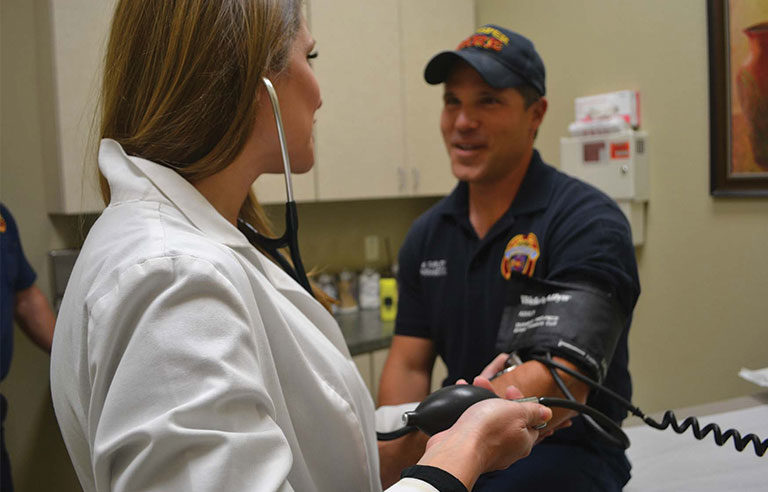Study links demands, increased 24-hour shifts to high blood pressure in firefighters

Irvine, CA – Male firefighters under heightened work demands may be more likely to suffer from hypertension, according to a study from the University of California, Irvine.
For the study, 330 Southern California firefighters – of whom 321 were male – completed a questionnaire regarding their health at work and allowed researchers to assess their blood pressure. The researchers determined that about 11 percent of the firefighters had hypertension and, of those, half experienced uncontrolled high blood pressure (defined by the researchers as ≥140 millimeters of mercury for systolic blood pressure or ≥90 millimeters of mercury for diastolic blood pressure).
For the firefighters who had normal blood pressure or were hypertensive but not taking blood pressure medicine, working extra 24-hour shifts in the month prior to the study resulted in diastolic blood pressure readings that were 5 millimeters of mercury higher than the firefighters who worked a standard schedule of 8 to 11 24-hour shifts. In addition, firefighters who cited “increased job demands over the past years” had systolic blood pressure readings that were 3 millimeters of mercury higher.
“Optimal collective and individual workload and improved hypertension management are warranted for enhancing the cardiovascular health of firefighters,” the study states.
The researchers recommend limiting the number of 24-hour shifts that a firefighter can work and hiring additional firefighters.
Post a comment to this article
Safety+Health welcomes comments that promote respectful dialogue. Please stay on topic. Comments that contain personal attacks, profanity or abusive language – or those aggressively promoting products or services – will be removed. We reserve the right to determine which comments violate our comment policy. (Anonymous comments are welcome; merely skip the “name” field in the comment box. An email address is required but will not be included with your comment.)

